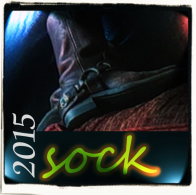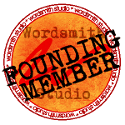
Thanks to the tropical showers that trapped me in a coffee shop long enough to make headway. c Elissa Field
Getting into the thick of novel revisions this week has felt like parenting a belligerent preteen – not that I have one of those (apologies, boys).
On the way back from a meeting midday yesterday, I forced myself to stop and write at a coffee shop for a solid hour. I’ve put so much pressure on myself to complete this novel revision and be ready to query agents by summer’s end (I’ve been sharing this goal and inspiration using #SumNovRev on Twitter – jump in, if you share that goal!).
Luck of nature: I was trapped at the coffee shop by a tropical downpour. It took headphones, a great play list and a good hour or more to get to a point where I wasn’t fighting this manuscript.
As I hit a groove (sympatico: just as Cristina Aguilera belted into “Fighter“), I tweeted: “Not in love with your WIP? Skip to a part you love. Work from there, build on strength.” So much gets deleted anyway, so why sweat the scene I hate? Still lots to go, but I’m probably about 20% through that project of retyping the draft, using the only the parts I really like.
That said, it’s time for me to share some of the Friday Links for Writers that were my favorite inspiration this week. As always, feel free to share your own favorite links (including your own) in the comments.
* * * * *
Interview with Kate Kristensen
One of the interesting things revealed in Amanda Green’s Rumpus interview with Kate Kristensen — who has written several novels and nonfiction books, as well as freelance and magazine writing — is the ways she used blog writing to interact with, develop and be relief from other forms of writing.
In this great New York Times piece, Amy Klein shares a great cross-section of writing advice under the guise of “defining” the feedback used in writing workshops. It’s great as a morning read to inspire revisions, with classic questions such as, “What does the character want?” This article is part of an ongoing series called “Draft,” on the writing craft.
We’re Losing All Our Strong Female Characters to Trinity Syndrome
With all the talk about diversity in the publishing industry, I thought this piece by Tasha Robinson at The Dissolve was one of the more interesting discussions. Tasha casts doubt on stories that simply add a female lead, even if it’s a strong, well-developed character, where the power in the story still remains in the hands of the male lead.
How to Get Published: 4 Debut Novelists on Elevator Pitches and More
I loved this Buzzfeed interview by Lincoln Michel with four debut novelists, for its down to earth insight into those publishing hurdles like phrasing the pitch.
How to Become a Literary Agent
This may be particular to my own interests in agenting, but I loved this piece by agent Juliet Mushens on Marie Claire’s blog, with her list of what it takes to be successful as a literary agent.
A Literary Expert on Driving in the Dark
Despite the ubiquity of Neil Gaiman advice articles, I loved this interview in the New York Times for some of his confessions of inspiration and his confidence about writing ahead, like “driving in the dark.”
This article by Donald Maass at Writers Unboxed is a repeat (included in Friday Links for Writers 07.05.13) but it’s one of my favorites — and kindred spirit with the part of the novel draft I fell back in love with at the coffee shop yesterday… So, enjoy. If you want more, this post shares some of Maass’s great novel writing prompts.
* * * * *
Writing Communities
I can’t go without mentioning the explosive activity in my writing communities this week. You may have seen this show up as odd hashtags about #binderwomen or #binderwriters, and a couple others intended to go below radar. This isn’t the post to explain this completely, but I do want to take a second to give a shout out to the hundreds of women in my writing community who share such talent and energy. It’s great to connect with you (say “hello” in the comments!).
 I’ll also be explaining later the addition of the WAG Advisory Group badge that’s been added to the sidebar on this site, but for now, you will recognize Wordsmith Studios as the fabulous, supportive and talented group of writers I’ve been part of for two years now. Shout out to my Wordsmith friends. Find us in Tuesday chats using #wschat.
I’ll also be explaining later the addition of the WAG Advisory Group badge that’s been added to the sidebar on this site, but for now, you will recognize Wordsmith Studios as the fabulous, supportive and talented group of writers I’ve been part of for two years now. Shout out to my Wordsmith friends. Find us in Tuesday chats using #wschat.
* * * * *
What About You?
What writing goals are you working on this week? What resources or writing communities inspire you most? Please share any great links — including your own — in the comments.
* * * * *
If you like this blog, be sure to subscribe using WordPress’s +follow option, or via email or the Bloglovin button in the sidebar. I love to connect with like-minded readers and writers!
- My Summer Reading List 2014
- Friday Links for Writers 06.13.14
- Finishing the Novel Draft: the Daily Task of Getting it Done
- Novel Revision Strategies: A Day’s Work in Pictures
- Review of Anthony Marra’s A Constellation of Vital Phenomena
- Novel Revision Strategies: Retyping the Novel Draft





























